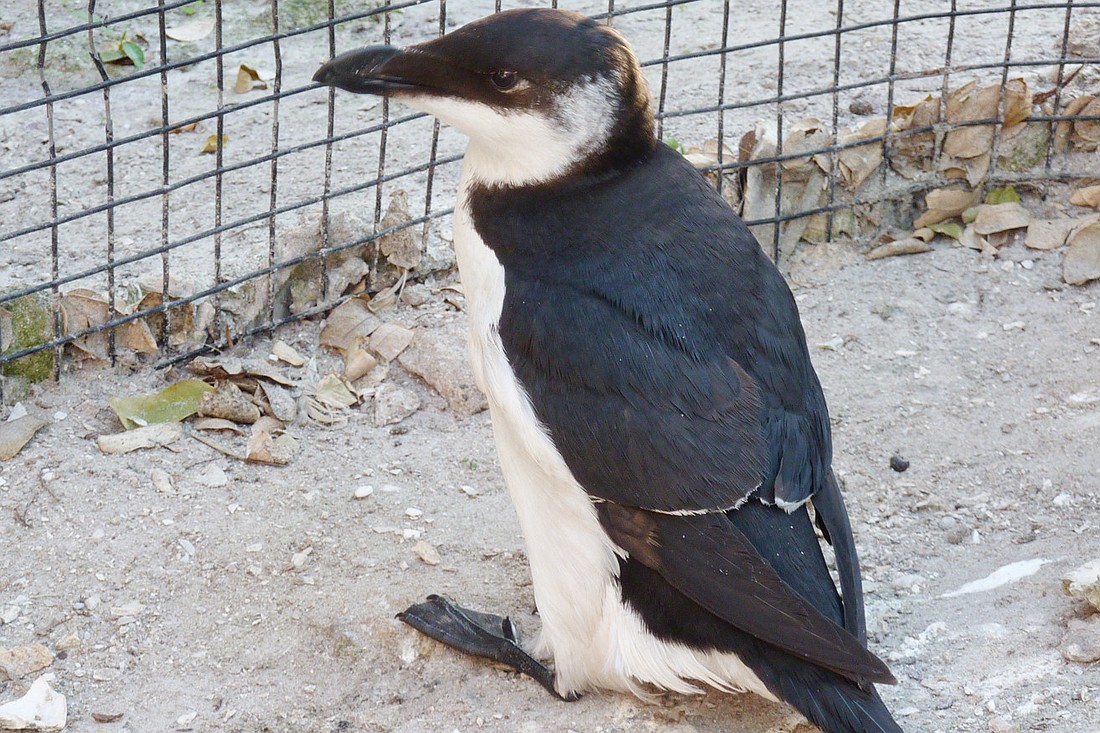- April 19, 2024
-
-
Loading

Loading

On Feb. 14, a razorbill named Russell took flight.
But, for this flight, he got to relax his wings, because he was on board an airplane en route to his new home at Sea World, in San Antonio.
Russell was one of hundreds of razorbills that made an unusual journey in December and January, when they began migrating to Florida. The penguin look-alikes are part of the alcid family and typically reside in cold North Atlantic waters, rarely straying south of Cape Hatteras, N.C.
Before the end of 2012, Florida had just 14 reports of razorbills.
Dr. Lou Newman, a retired veterinarian and avid wildlife photographer, wrote in an email in December that other species that are typical in the Northeast and mid-Atlantic have been turning up in the Southeast.
Alcids are sometimes driven by storms to unusual places, but, usually, large-scale invasions are driven by food shortages.
Many died after becoming emaciated and dehydrated, according to Save Our Seabirds CEO David Pilston, but one male razorbill that volunteers rescued in early January near the City Island facility survived.
Staffers and volunteers rehydrated him and tube fed him.
They nicknamed him “Russell” because they liked the sound of Russell the razorbill.
They did their best to keep him cold and brought in blocks of ice for his pond. He fattened up and started eating fish again. Before long, SOS officials realized it was time to find him a more permanent home and placed him at Sea World in San Antonio.
Last week Russell went to Busch Gardens in Tampa before catching his flight to San Antonio.
Russell still has a broken wing, which could cause problems for him if he were released into the wild because razorbills dive for their food.
It still isn’t clear whether Russell may someday be released into the wild.
According to Pilston, SOS staff already misses Russell. He’s a true survivor, he said.
“You can only keep a bird like that in captivity for so long,” Pilston said. “We’re very optimistic about his future.”